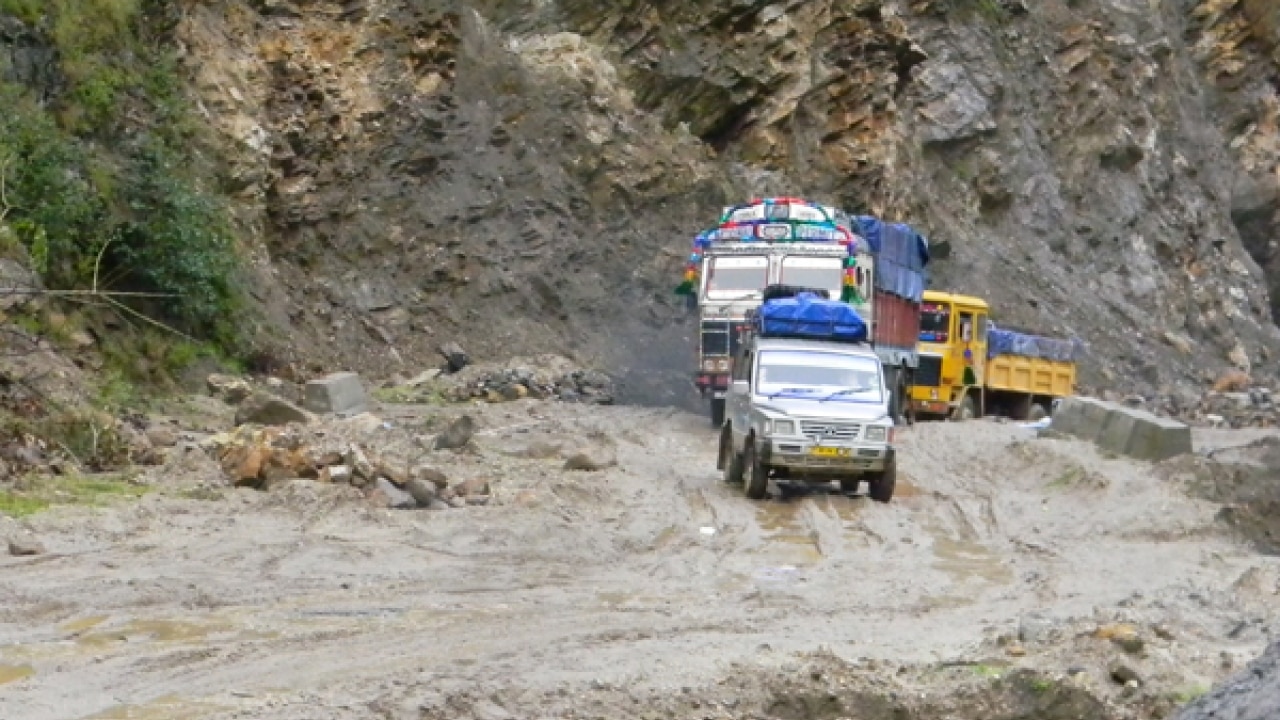
Last week, a headline that said Chinese People's Liberation Army can reach Tawang faster than the Indian Army, would have shocked those interested in defence matters.
At first glance, many people would blame the media for the misleading and some would say, sensational, headline. But don't shoot the messenger. The newspaper was merely quoting the Parliament's Standing Committee on Defence. The panel headed by retired major general BC Khanduri, commenting on the state of roads in the border areas with China, had observed that the PLA could reach the border at Tawang in two-three hours, it could take upto 48 hours for the Indian army to send in the reinforcements if push came to shove in the area.
The Parliamentary Committee may have been exaggerating the situation a bit in order to drive home the point that the infrastructure in India's border areas is primitive and needs a major push. After all there is nearly a Division strength (15,000 plus) troops stationed in and around the strategically important town of Tawang. It is however also true that the condition of the road that connects Tawang to the plains of Assam in Tezpur is pitiable and in its current state would certainly prevent additional troops from reaching there in a hurry.
Nearly 30 months ago--in September 2012--I had an occasion to travel the entire 350 km distance both ways while making a documentary on 50 years of the 1962 war that India lost to China in this theatre. I have been travelling in Arunachal Pradesh, arguably the most scenic of the seven North East states since 1986. It has always stood apart from its neighbours. Not just because it is remote or only sparsely populated but also because it is by far the most peaceful state in the region. There is no violence here, beyond the routine, or any indigenous insurgent group creating law and order problems. In 2012 however, for the first time in my travels to the state since 1986 I witnessed rage on the roads of Arunachal Pradesh.
The anger at the abysmal condition of the only road that connects the frontier town of Tawang to the foothills of Assam has boiled over. Bearing the brunt of the resentment was the hard working staff of the Border Roads Organisation (BRO), entrusted with widening and improving the roads.
That year (2012), enraged residents, no longer able to bear the hardship, attacked BRO officials, destroyed their vehicles and pushed heavy tippers and bulldozers down the steep valleys. I was shocked. I had heard from friends in the military about the worsening road condition. Even so, I wasn't prepared for the hardship that one encountered in travelling up the hills from Bhalukpong all the way to Tawang. There were stretches of 20-25 km that took three hours or more.
Why did this happen?
Around 2007, in a belated realisation, India's highest decision-makers on security (the Cabinet Committee on Security or CCS) opted to build up and improve infrastructure here, especially on the roads leading up to the China border, overturning the earlier policy of keeping the area underdeveloped lest the Chinese-- if they launched an offensive once again--used it!
Elaborate plans were made but five years down the line (2012) it was evident that making plans is one thing and implementing them on the ground is quite another. And this for a country that built a 250-kilometre "Garland Road" in Afghanistan in record time under the shadow of the Taliban.
With the Indian Army deploying one more Mountain Division (approximately 20,000 soldiers) in this sector, building infrastructure had become all the more critical.
But the BRO, despite its best efforts, has been unable to cope for a variety of reasons. The challenges of weather and terrain apart (it rains heavily four months a year; most areas are snow-bound for another three), one of the major hassles that the BRO faces here is the acute shortage of skilled labourers.
Officers say they are facing a 70% shortfall in manpower in this sector alone. The locals keep away and the labourers from Jharkhand and Bihar, who made up the majority of the workforce earlier, no longer find it attractive to travel the distance since there is plenty of work available back home now. Then there were the usual environmental hurdles, state laws overriding national security imperatives. The result: missed deadlines and work half done. The BRO was supposed to build 73 strategic roads along the India-China border. Of these 61 strategic roads with a total length of 3,410 km were to be completed by 2012. According to the latest statistic provided to the Parliamentary Committee only 19 roads of 625 km length have been completed!
Even as I write this, Defence Minister Manohar Parrikar is on his maiden visit to this crucial sector. Hopefully, he will be given the real picture of the state of affairs on the border without any garnishing. Once briefed, he needs to whip the BRO and all other agencies responsible for infrastructure building in the border areas into action. Accountability is the key here. As defence minister Parrikar will be judged by what he is able to deliver over the next four years after a five year period of lost opportunities in matters of defence.